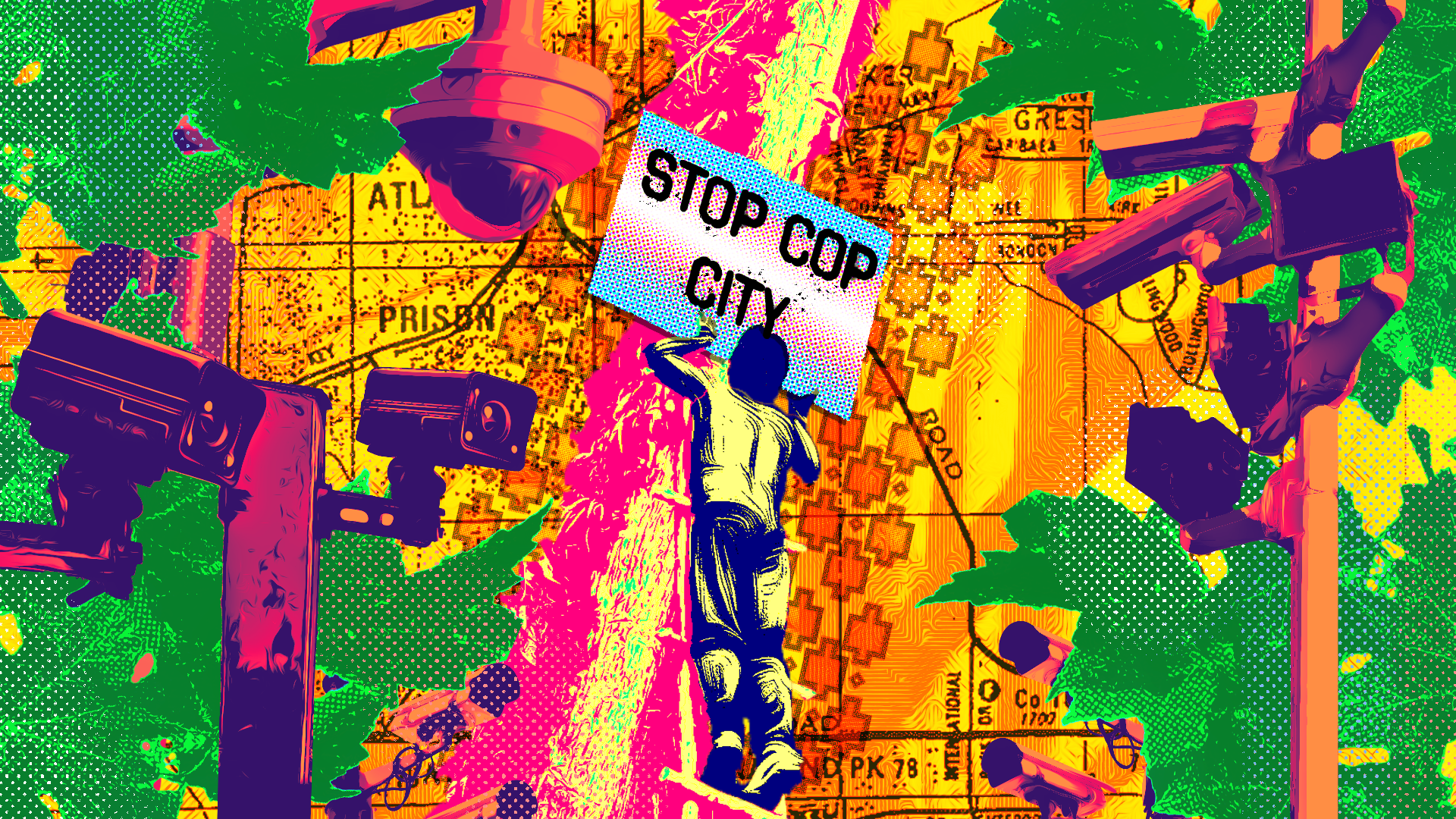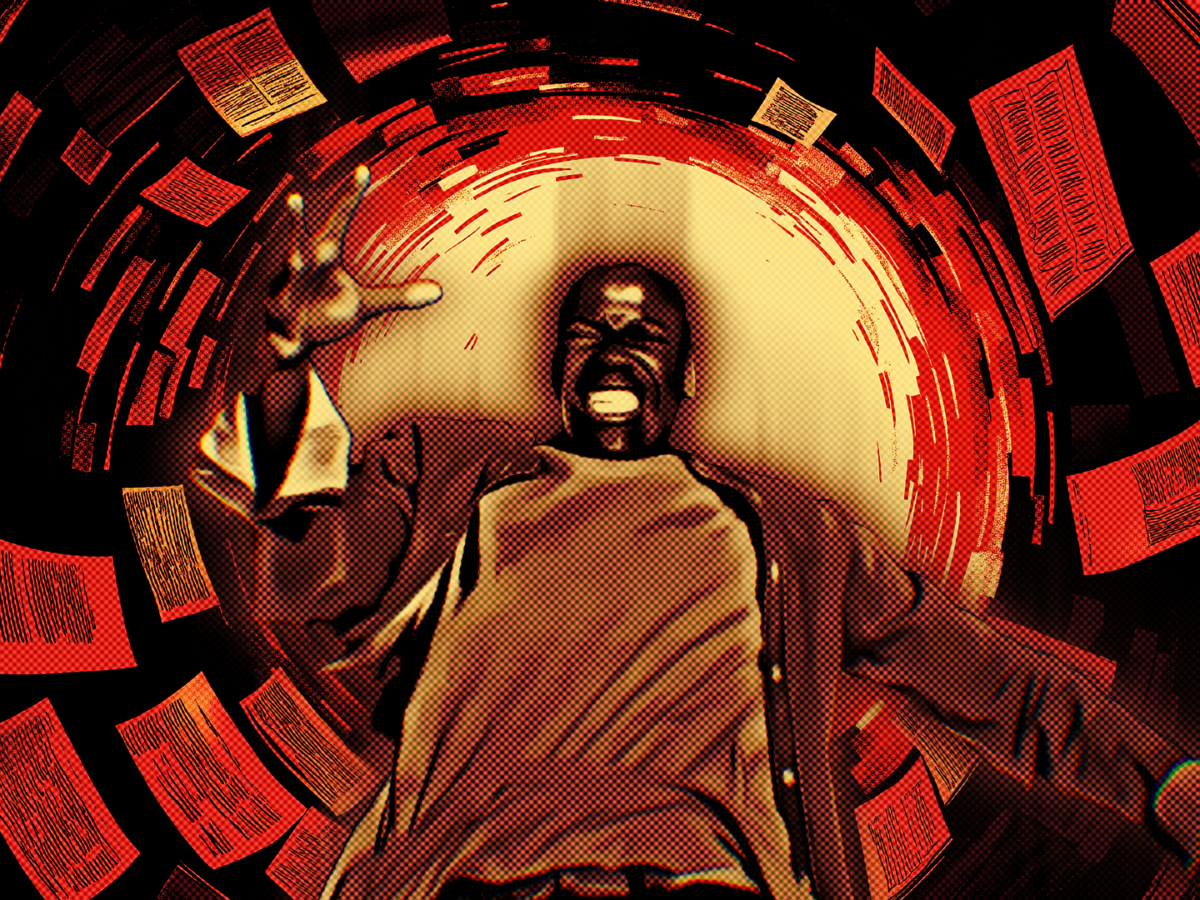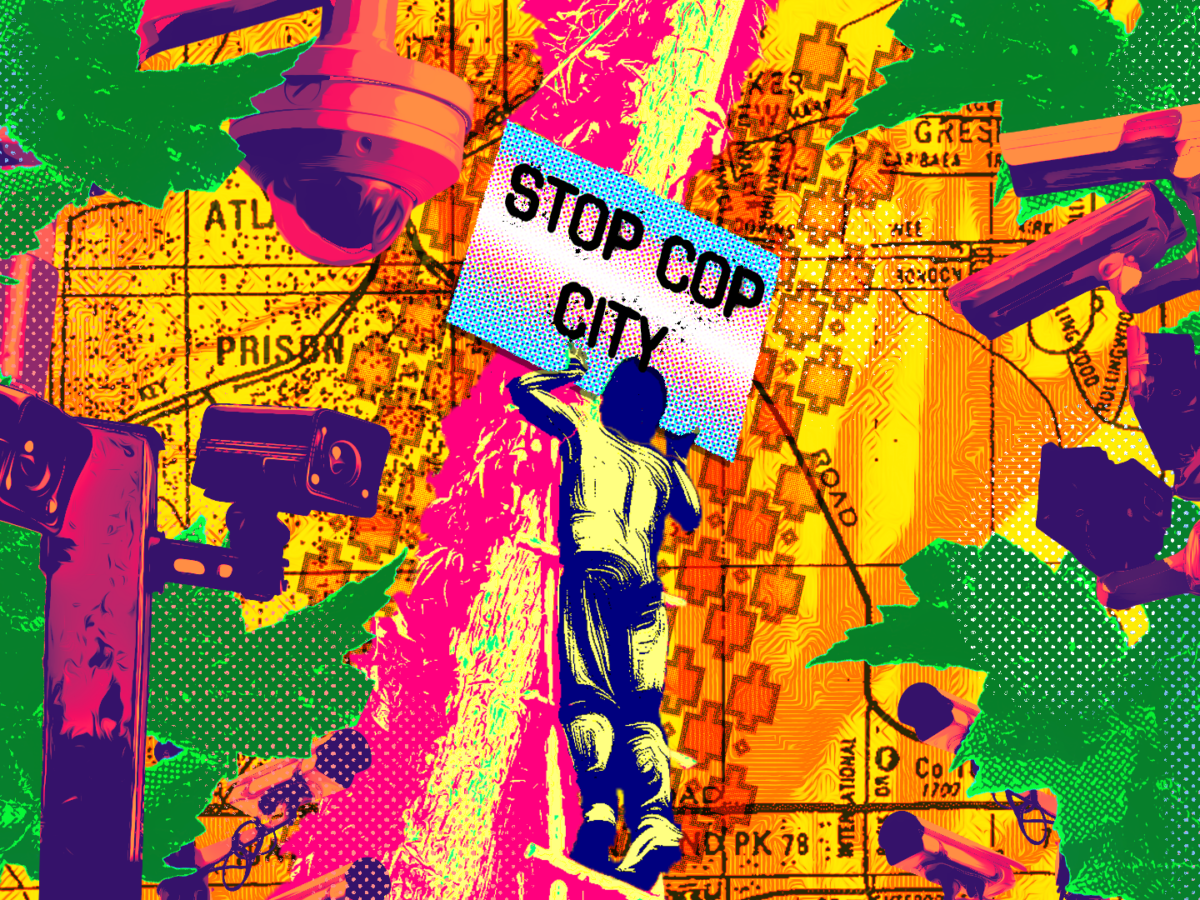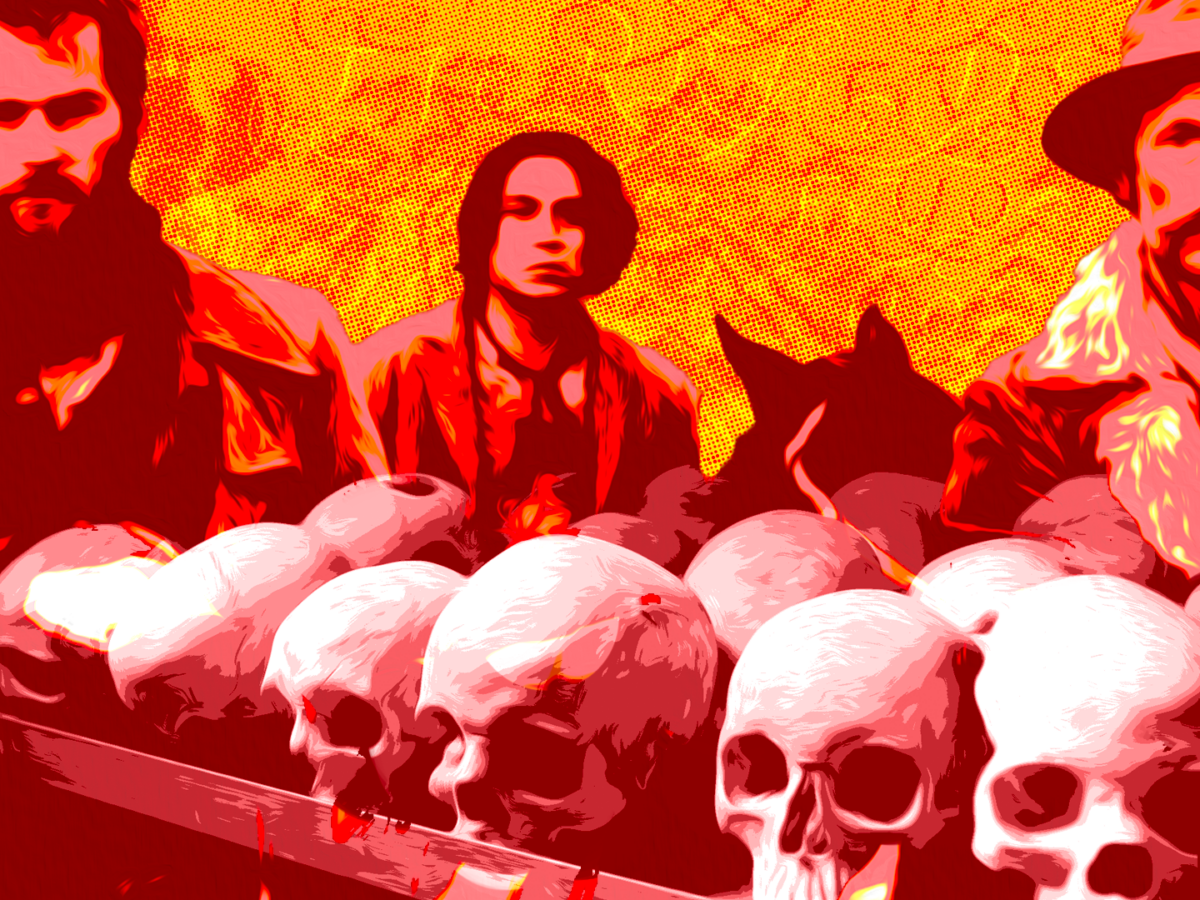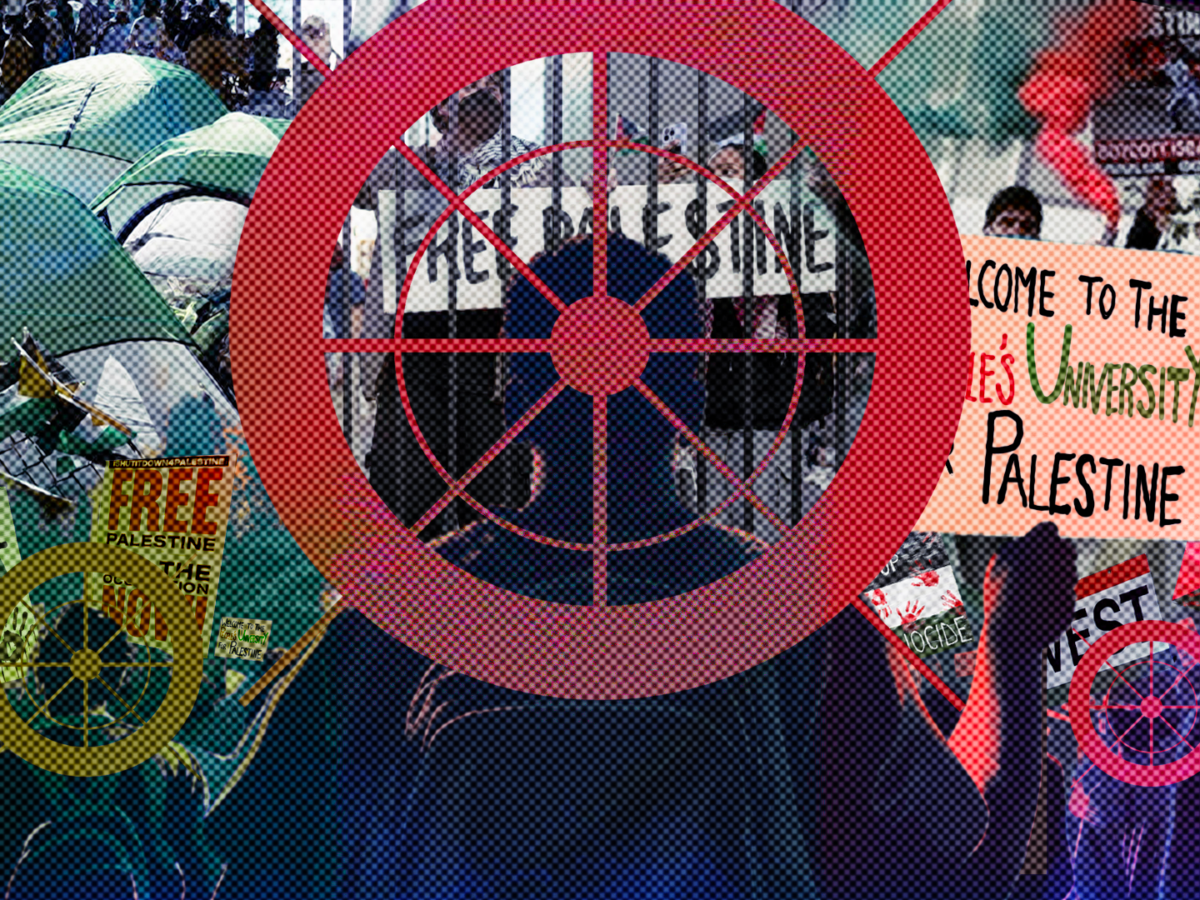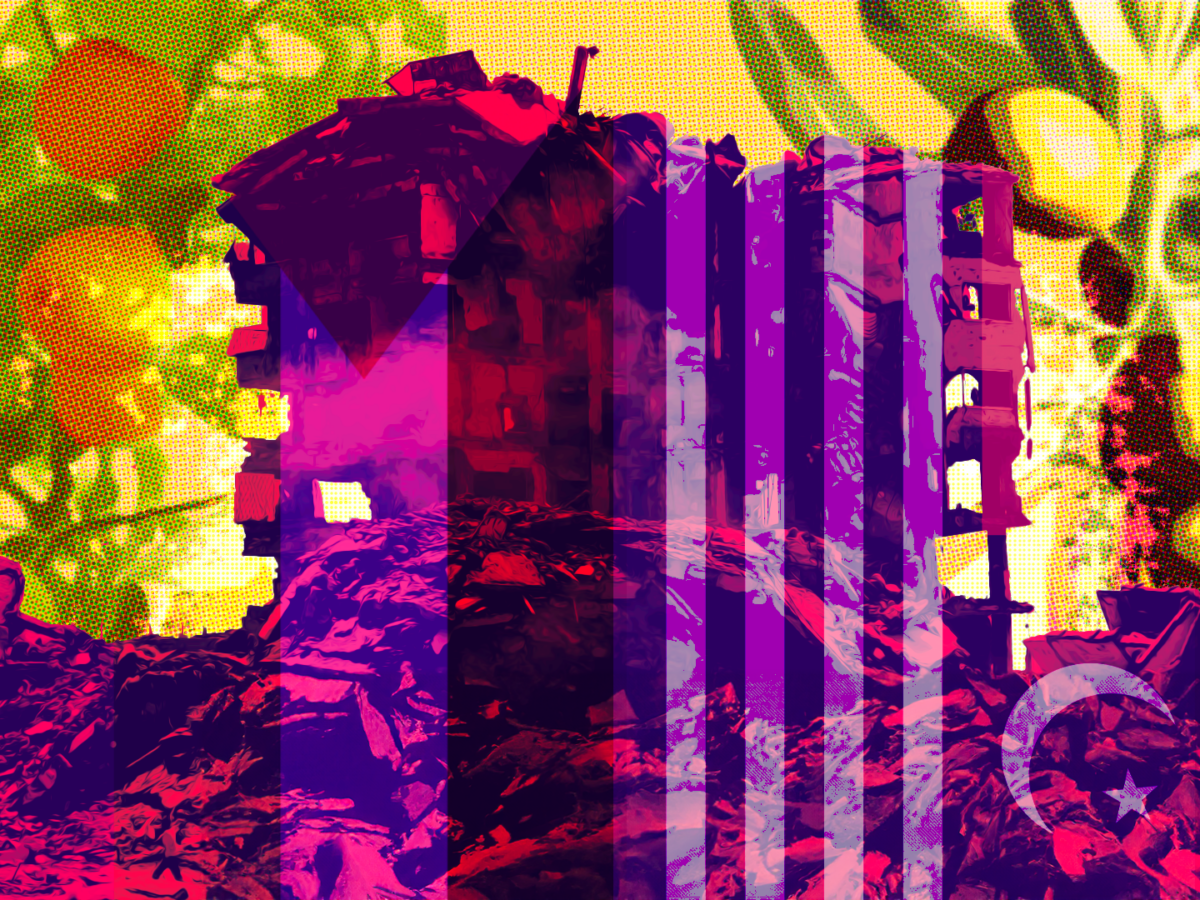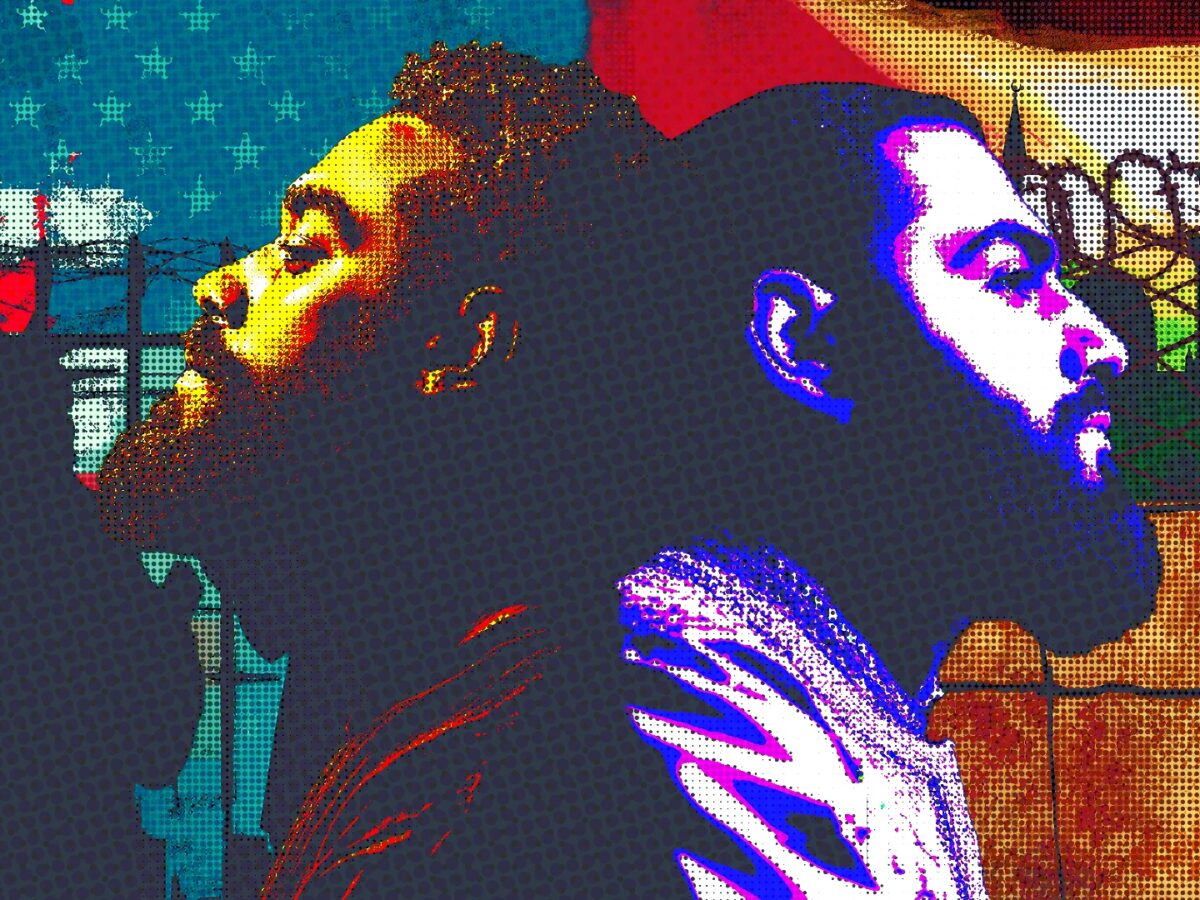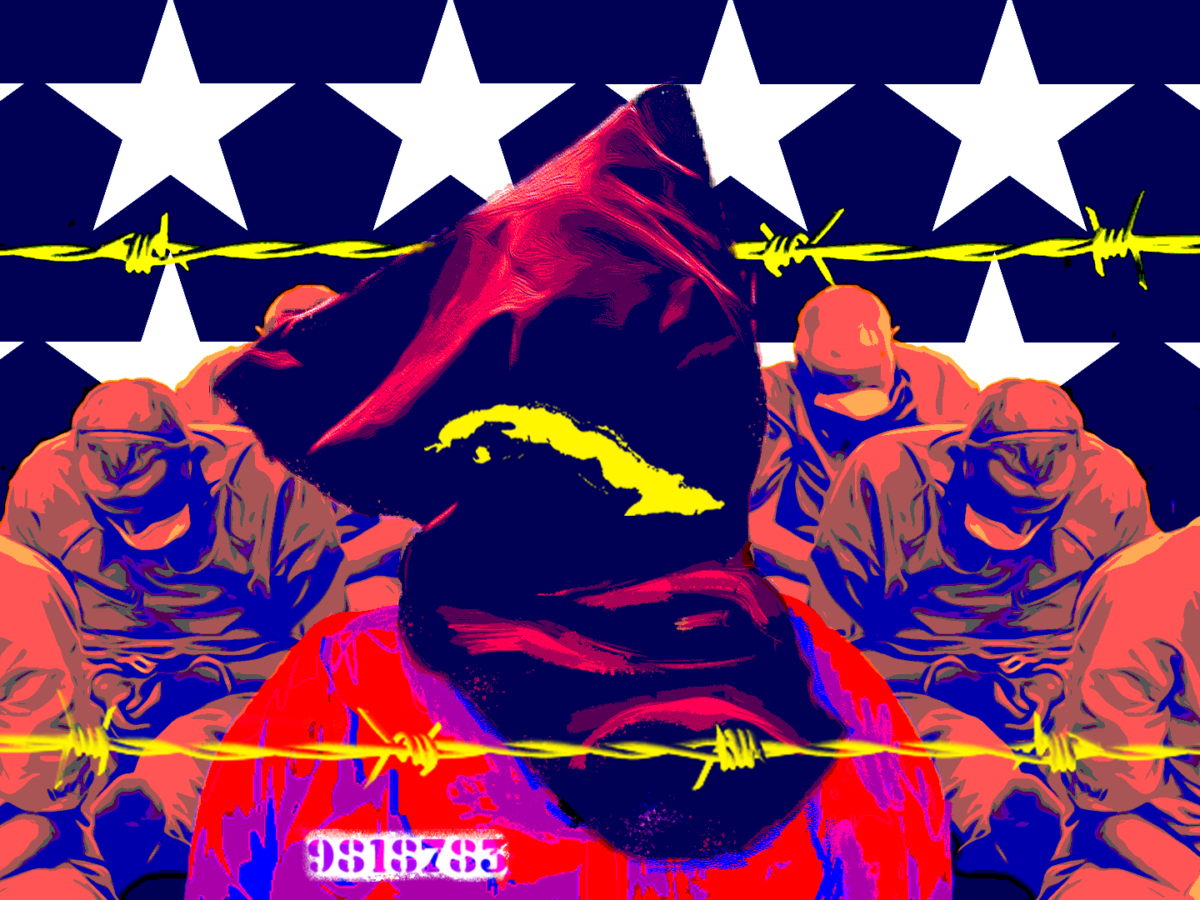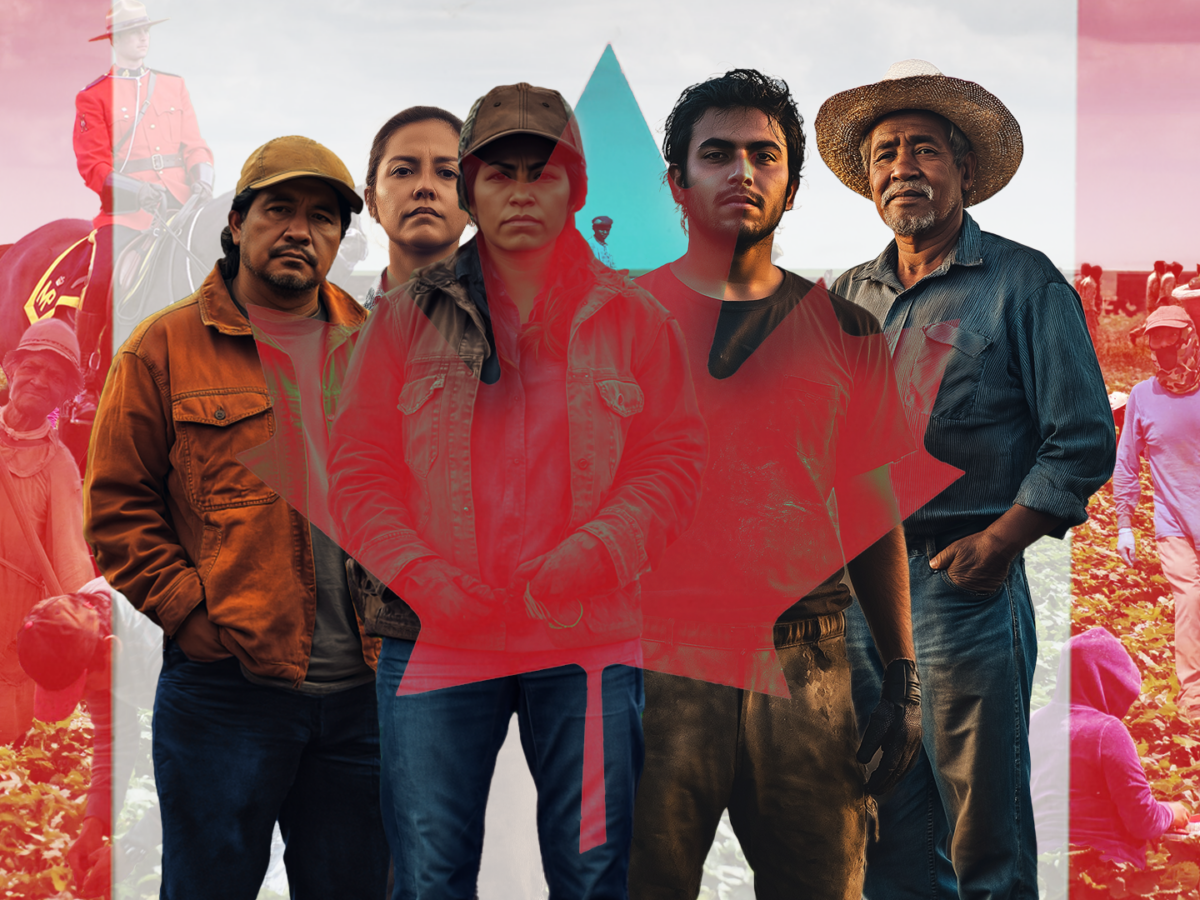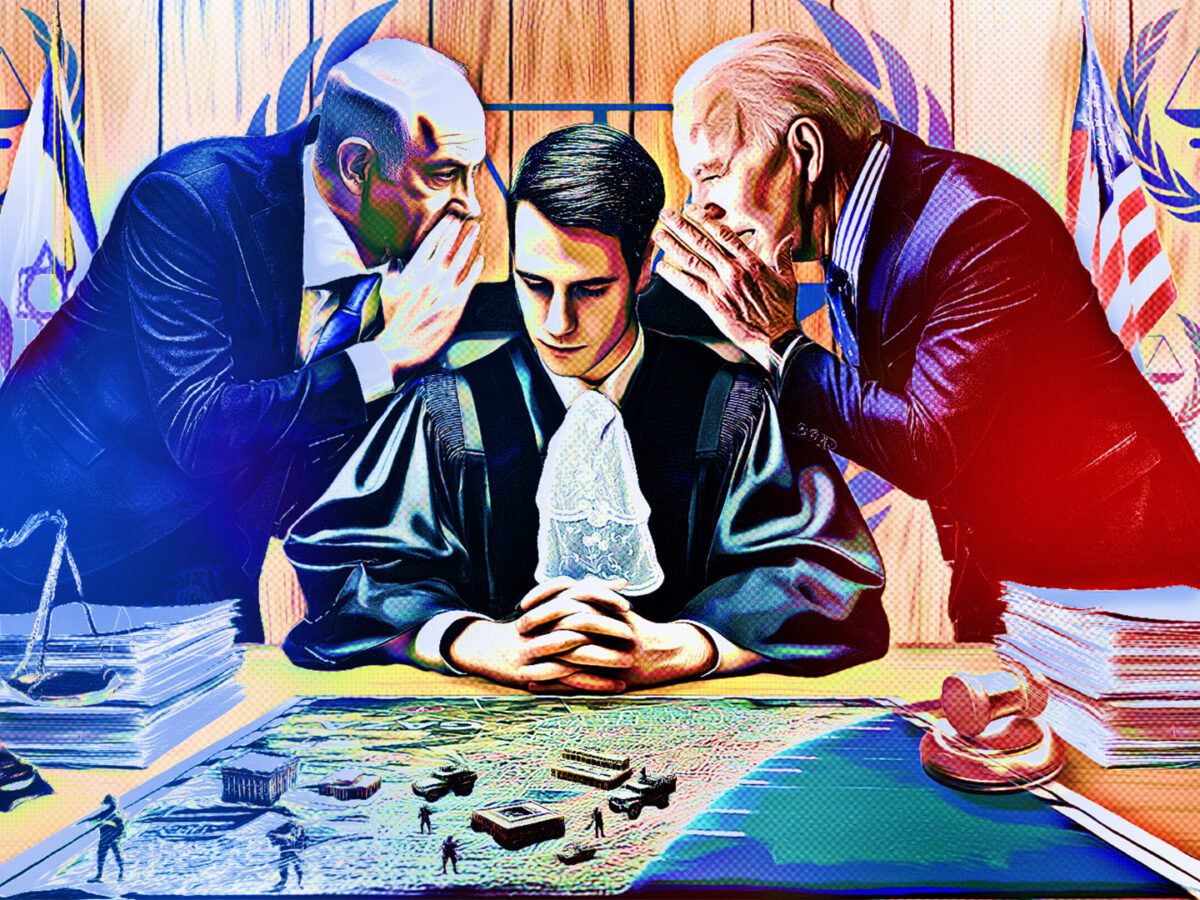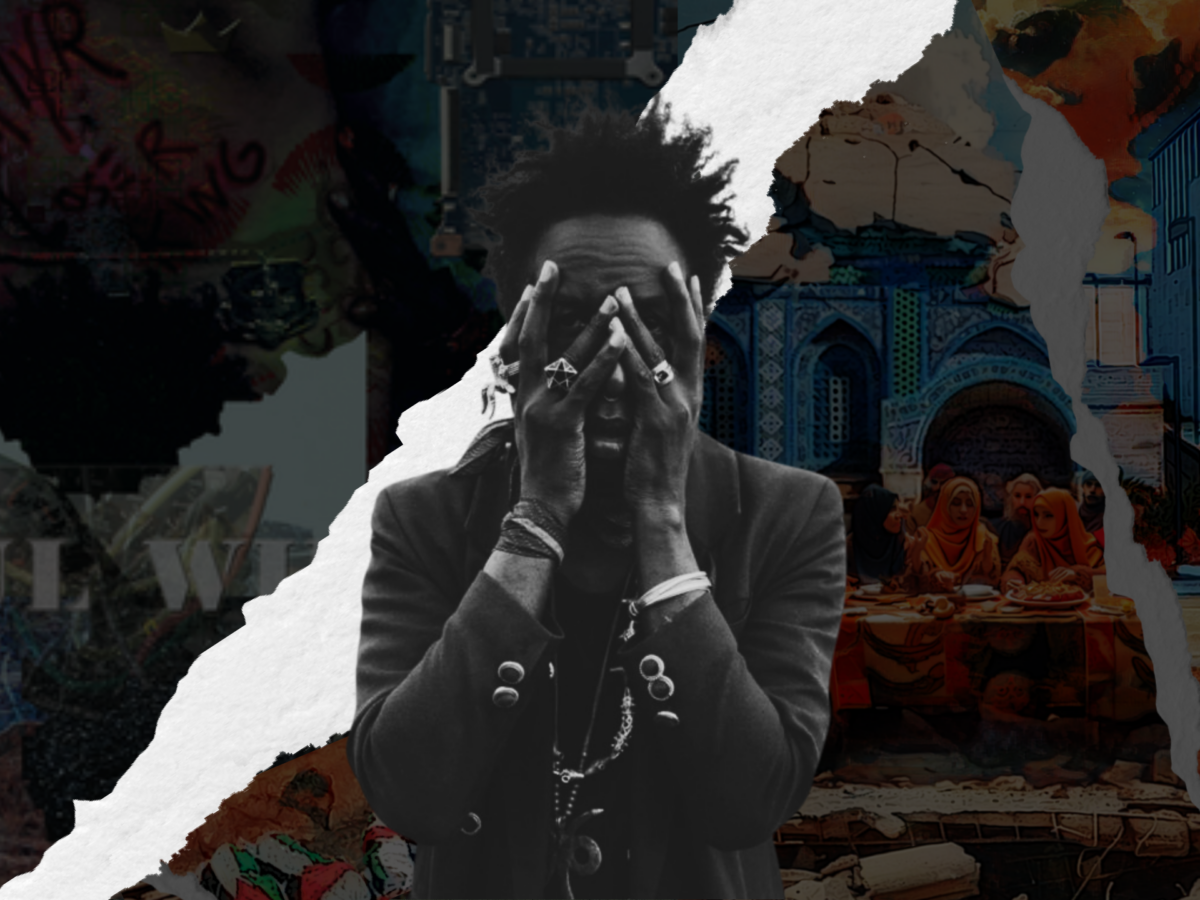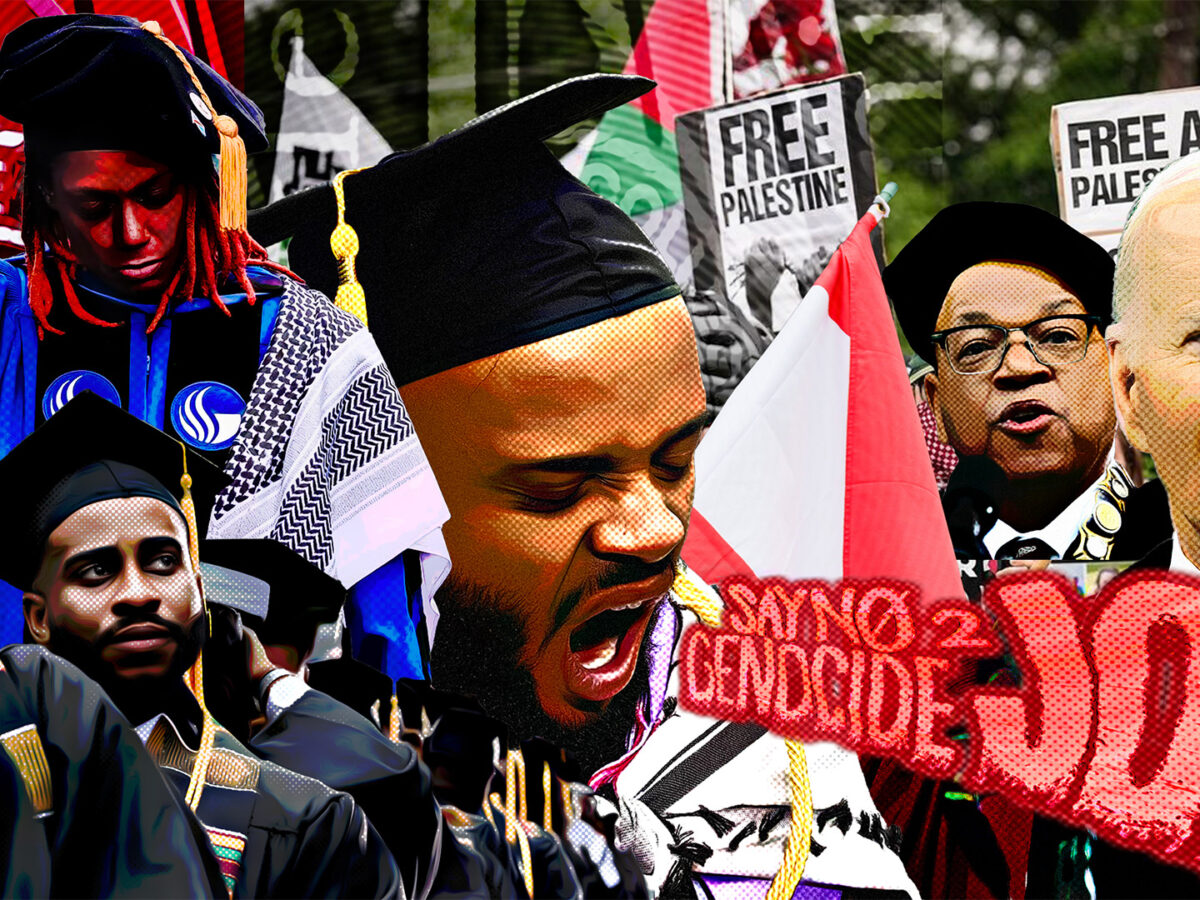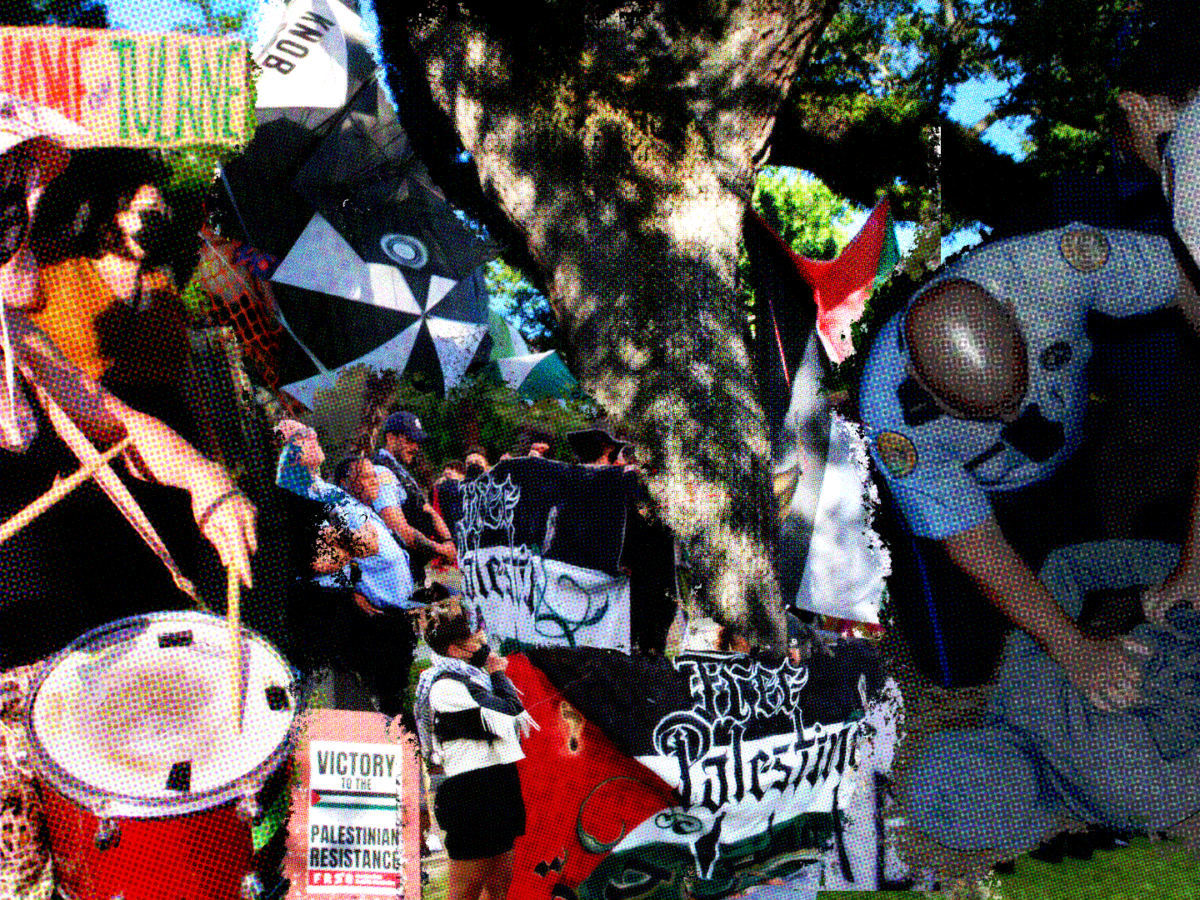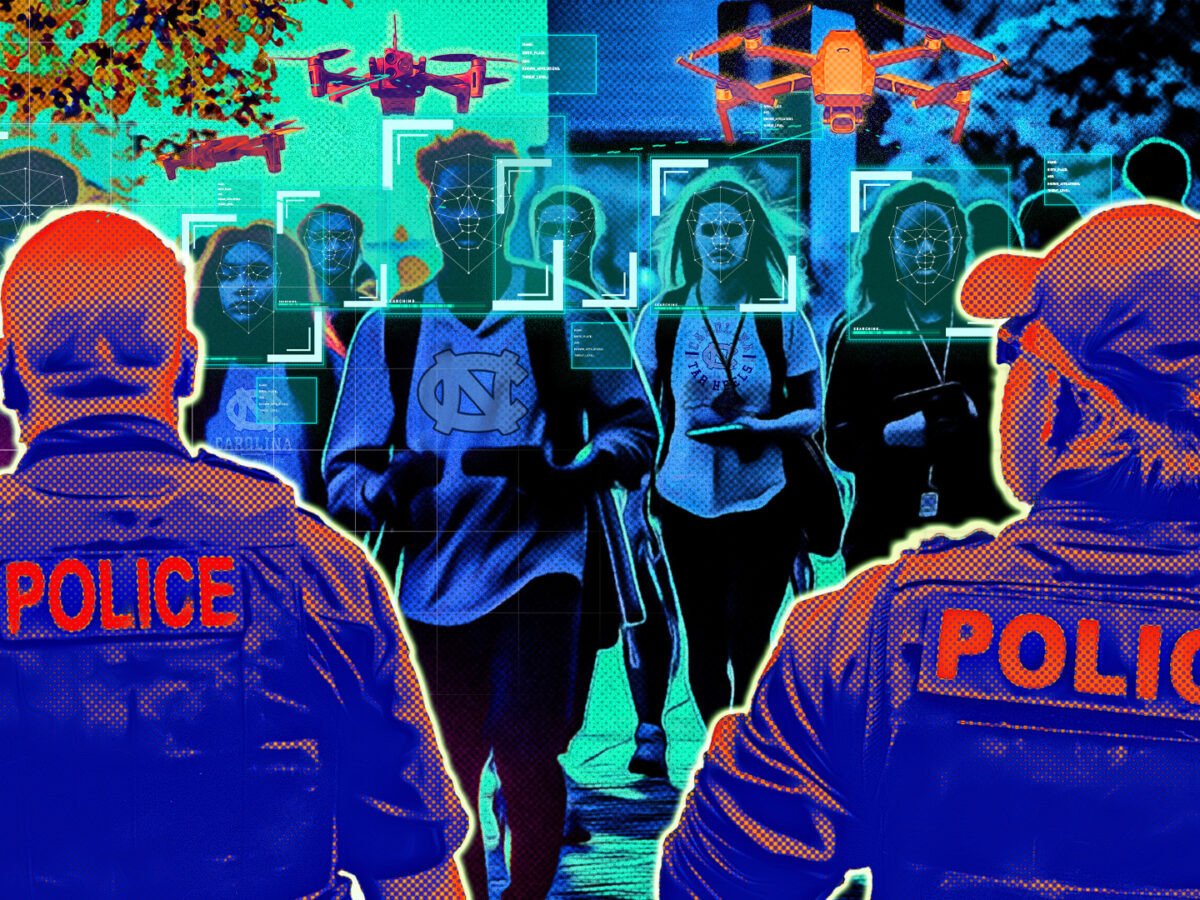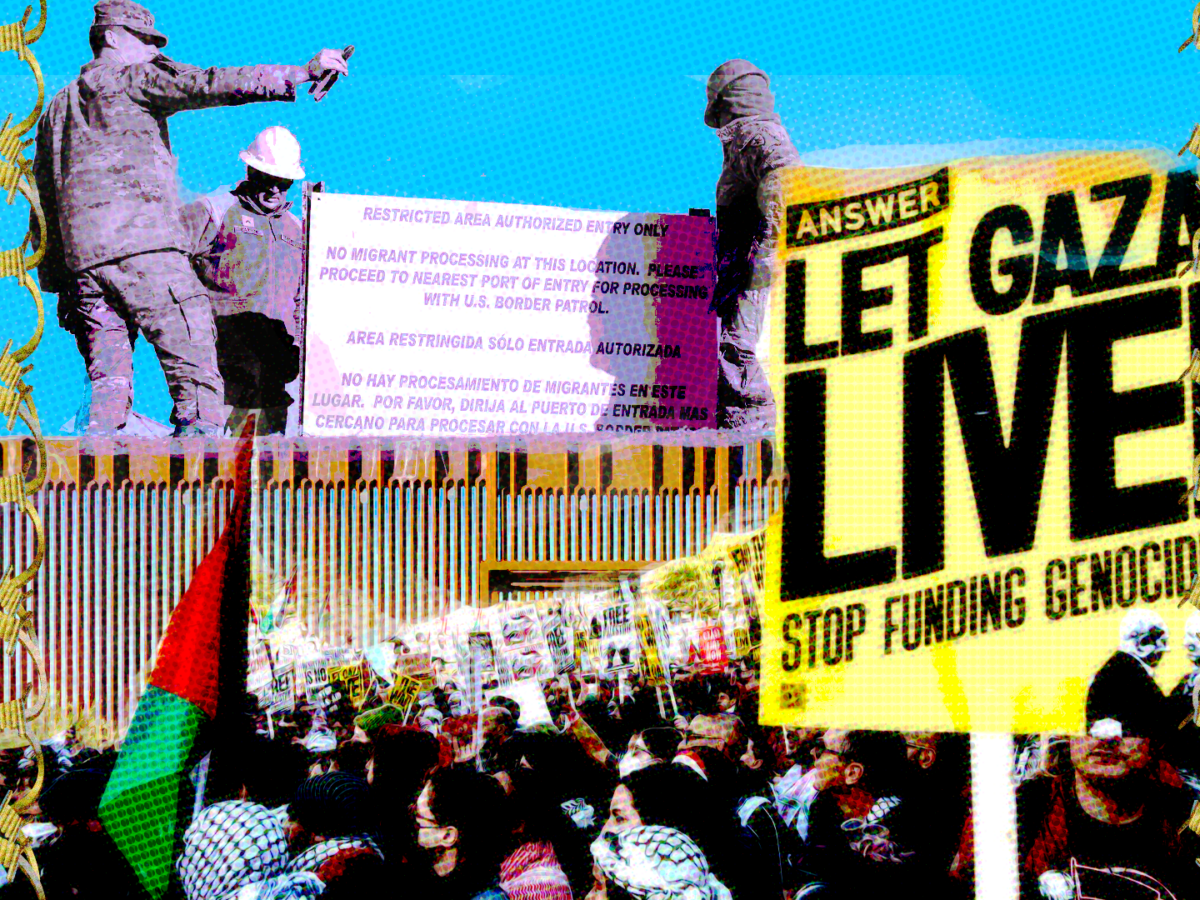Scalawag has traditionally been a publication focused on amplifying the creativity and lived experience of American Southerners. In 2023, we as a publication moved beyond the loosely defined borders of our South, as the political moment demanded we give voice to the intertwined histories of struggle and shared cultures of our South alongside the Global South. This South to South project launched with our annual Abolition Week, themed as "The Bars We Cannot See." It emphasized the global connections forged by the plantation's legacy and the endurance of its disciplinary structure manifested in the world's contemporary carceral apparatus.
In the editorial introduction for that Abolition Week series—which intentionally published narratives from Palestinian political prisoners and residents held in Gaza's open-air prison alongside current and formerly incarcerated American Southerners—we defined our publishing imperative in these terms:
"By drawing this connection between American prisons and the open-air system of containment in Gaza, we re-center the plantation as a common point of origin for both systems within the narrative of global carceral expansion. This work is crucial for us as a Southern abolitionist publication, contending with prisons and policing in the US as the progeny of the Southern plantation and global antiblack logics. We clearly see the connections between our own reality and the reality of Palestinian captivity, despite geographical distance. Understanding these connections between the American South and Global South provides not only a broader understanding of global carcerality at present, but that the connection between the invention of "New World" plantation technologies in relation to the expansion of empire and the birth of a modern world order teaches us the ways in which power stabilizes itself through the reproduction of technologies of containment.
To understand the role of slavery, antiblackness, and the plantation in the expansion of the British Empire—and by extension, the modern world—is to also recognize it as foundational to the colonial logics that bestowed upon England the capacity to cede Palestine to the Zionist settler state project starting in 1947. There is no empire without plantation slavery and under the modern paradigm, black and Southern unfreedom remains the blueprint upon which technologies of containment like Gaza must be deployed as the condition of possibility for future imperial expansion."
2023's Abolition Week was published just six weeks before the Operation Al-Aqsa Flood in many ways anticipated both the revolutionary Palestinian prison break and the genocidal violence the occupying Zionist entity intensified on October 7 and has since continued carrying out in its wake. From the co-occurring genocides in Palestine, Lebanon, the Democratic Republic of the Congo, and Sudan, to the current Western-supported political destabilization in Haiti and Cuba, to the colonial relation the US continues to hold over sovereign lands like Hawaii and Puerto Rico—the state of the world demands our publication and readers make the crucial connections between Southern inventions like Jim Crow racial segregation and apartheid states. We must also commit to deepening our analysis of the global nature of Indigenous dispossession, labor and resource exploitation, anti-immigrant sentiment, state abandonment, and fascist censorship.
It is for this reason that, in 2024, our editorial team continued to publish the global red record of state abandonment and violence, alongside narratives centering the contemporary and historic Southern movements that have done the work of resisting and surviving anti-black, capitalist, and imperial attempts to exterminate the masses upon which the plantation's progeny structures rely for their reproduction. As we wrap up a year of witnessing and resisting the ills of this fascist global restructuring, we offer a reading list of this year's South to South pieces in hopes that they ignite revolutionary light in these dismal times.
Empire Must Die
This year's Abolition Week theme makes it clear: if freedom is what the world's exploited people demand, the imperial forces that prey upon us and the land must die. With Empire Must Die, writers explore "how the combined forces of Western imperialism and plantation legacies produce carceral logics globally—conditions that fuel genocidal arrangements in the US South, Latin America, Palestine, and other parts of the world."
Currently incarcerated writer E. Paris Whitfield offers a nuanced critique of the various felony murder law prosecutions states leverage to extend sentences and shorten the lives of those found guilty under the law.
"The felony murder law is psychological violence that severs family bonds, politicizes public and private spaces, and generationally restricts Black and Brown people's ability to procreate, due to long-term sentencing or death from poor health while incarcerated."
Michigan-based advocates for people combatting legal charges for political actions detail the role advanced AI-surveillance technologies play in repression in this account of the Traverse City 3—three Michigan organizers apprehended on charges related to their participation in Stop Cop City actions in Atlanta.
"The warrants for the arrest of the Traverse City 3 were issued based on the tracked locations of cars registered in defendants' names. The prosecution is using data obtained from Flock Cameras, which use AI technology to read license plates, collect data on physical car details such as bumper stickers, and allow government agencies to quickly locate a car in locations more than 100 miles apart."
In this review of the 2023 film, Los Colonos (The Settlers), Sammy Feldblum connects the violence of the making of the settler nation-state depicted in the film to the anti-Indigenous violence and environmental degradation ravaging the world today.
"The last chapter of Los Colonos dramatizes this tension by exploring nation-states' moves to innocence. Yet no mythologizing can absolve them of the monstrous histories of their making, nor provide redress for those communities upon whose bloodied backs the states were built."
Sumona Gupta connects policing's roots as a tool of colonial management in colonies across the Global South to the intense repression witnessed on US college campuses to shut down this year's Student Intifada Palestine solidarity movement.
"The criminalization of student protests in spring 2024 took place against a long-running backdrop wherein political and educational institutions had heightened, antagonistic, and even militarized responses to anti-imperial messaging. Emblematic of this are the commentators' observations that police crackdowns against student protests have not been this violent since actions taken against those in the Vietnam War-era."
Laura O'Connor centers the parallel cultural experiences between Palestinians' relationship with olives and Kashmir natives' connection to apples to examine and critique the use of ecocide as a means of colonial violence intended to sever Indigenous people from their land.
"Due to the overlapping struggles between Kashmir and Palestine—including ecocide and environmental destruction, resistance movements, digital abuse, and the Western media's role in covering up both struggles—Kashmir has come to hold an additional colloquial name: the Gaza of South Asia."
Currently incarcerated writer and abolitionist Michael Ray reflects on his experience living in American prisons and connects the everyday violence of that captivity to that of Palestinians living under occupation.
"Critics will inevitably conclude that I'm somehow justifying crime and terrorism. But if I were to explain the causes of cancer and then argue that preventing its development is more effective than absurdly trying to cure it with the same carcinogens that caused it in the first place, I would not be "justifying" cancer. The solution to violence and hatred cannot be more violence and hatred."
Journalist Emily P. Russell confronts the specter of Guantánamo Bay and finds that the military installment has long acted as a test lab for the torture and exploitation at the heart of the American carceral system.
"Though it held almost 800 individuals at its height, today, the detention facility holds just 30. There are important and unignorable differences between the two systems, and yet, similarities abound across America's diverse carceral settings. The two systems' similarities reveal that ending carceral realities in the states has to involve ending them elsewhere, especially those places where the US props them up."
500 years after the start of the Trans Atlantic Slave Trade, Likam Kyanzaire covers how a new class action lawsuit on behalf of migrant workers in Canada is calling out the nation's abuse of Black and Brown migrants.
"Under Canada's SAWP program, Canada's migrant laborers are "charged" to an employer. The system's few safeguards fail to protect migrant workers, who can be fired for whatever reason and must leave the country within eight months. This work relationship makes migrants fearful that any transgressions or worker complaints will lead to their firing and subsequent deportation."
Palestinian Solidarity
Feminist lawyer Ja'Loni Owens offers a scathing critique of the illegitimacy of Western international legal institutions, and the complacent radical movements who accept such actions as ICC warrants against war criminals like Bibi Netanayhu as worthy "progress" in anti-colonial liberation struggles.
"Israeli occupation did not begin with Prime Minister Netanyahu, and the occupation of Palestine will not end if and when Netanyahu is arrested and tried… Do not let the intervention of the ICC and the United Nations convince you that the work is done. It's barely started. The demand is for the end of the occupation and a liberated Palestine."
This year Scalawag joined Truthout, In These Times, Prism, Mondoweiss, The Forge, The Real News Network, Convergence Magazine, Waging Nonviolence, The Dig, Haymarket Books, and others in the coalition, forming the Movement Media Alliance (MMA). In this op-ed Lara Witt of Prism and Maya Schenwar of Truthout, introduce Media Against Apartheid and Displacement (MAAD), MMA's first collaborative project, as they lay out the urgent need for counter-narrative strategy in times of war, genocide, and fascist censorship. For more on the Movement Media Alliance, check out this announcement.
"MAAD is a direct response to a vital need: We provide a home for journalism that centers on the people most impacted by settler colonialism, imperialism, apartheid, genocide, state-sanctioned violence, surveillance and displacement."
In the Open Air is a poetry series curated by award-winning poet, essayist, and creative strategist Aurielle Marie, featuring contributions from mónica teresa ortiz, Rasha Abdulhadi, Saul Williams, and George Abraham. In it, Aurielle brings together work that bridges politics, culture, and theory.
"Called the world's largest open-air prison, Gaza continues to be assaulted by the settler colonial project of Israel, bombed by US artillery and Western bloodlust. In Sudan, open graves render whole communities into sites of mourning. And on the Southeast side of Atlanta, the State's commitment to Empire clears trees to build a monument to militarization in a forest known as the lungs of the city. The air flows around us as we survive these violences; it is not a static witness."
This year, when the Student Intifada movement seized campuses across the country, Southern universities and HBCUs proved they were no exception to the upheaval. In this op-ed Morehouse and Spelman students Marq Riggins and Sydney Jael Wilson voice their movement's loud dissent after Morehouse College chose President "Genocide Joe" Biden as its 2024 commencement speaker, despite student calls for university divestment from Cop City, Georgia policing institutions, and apartheid israel.
"We demand our private institutions DISSOLVE their relationship with the Atlanta Police Department and all other organizations funding or supporting The Atlanta Public Safety Training Center and Israel."
The Student Intifada movement sparked repressive counter-action not only from university administrators and policing agencies but from the pro-Zionist donor class as well. New Orleans-based reporters Drew Hawkins and Delaney Nolan uncovered the deep connections between billionaire Estee Lauder cosmetics heirs—noted Zionist associates of israeli prime minister Bibi Netanyahu—and Tulane University in their coverage of the students censored during the pro-Palestine protests.
"The answer as to why Isaacson, a well-heeled and well-connected 72-year-old professor, would take it upon himself to use force against his own university's student for speaking out against the genocide may lie, like so many others, in the money."
Campus reaction to the Student Intifada's encampments brought new censorship extremes to campuses nationwide. In this piece, UNC Chapel Hill student Jordyn Cooper details the way her campus did so through the expansion of AI surveillance technology, a containment tactic that harkens back to North Carolina's plantation roots and Gaza's open-air prison structure.
"The encampment, like the university, was a place of learning, as there were teach-ins on the injustices occurring in Gaza and on campus. It was also a place of inter-faith prayer and congregation, as Jews, Muslims, and Christians worshipped together in the space. It was a space of community, support, empathy, and care, the opposite of what UNC claimed it to be."
An anonymous writer reflects on the heightened stakes of their participation in the Student Intifada as an undocumented person in Texas following the passage of Senate Bill 4, the most repressive anti-immigration law in the country.
"These policies collectively create an even more hostile environment for undocumented individuals, increasing their ever-present risk of deportation. This increased risk translates to the self-policing of undocumented people. We must consider that if we participate in a protest or escalated action (such as encampments), being arrested may likely lead to being deported."

